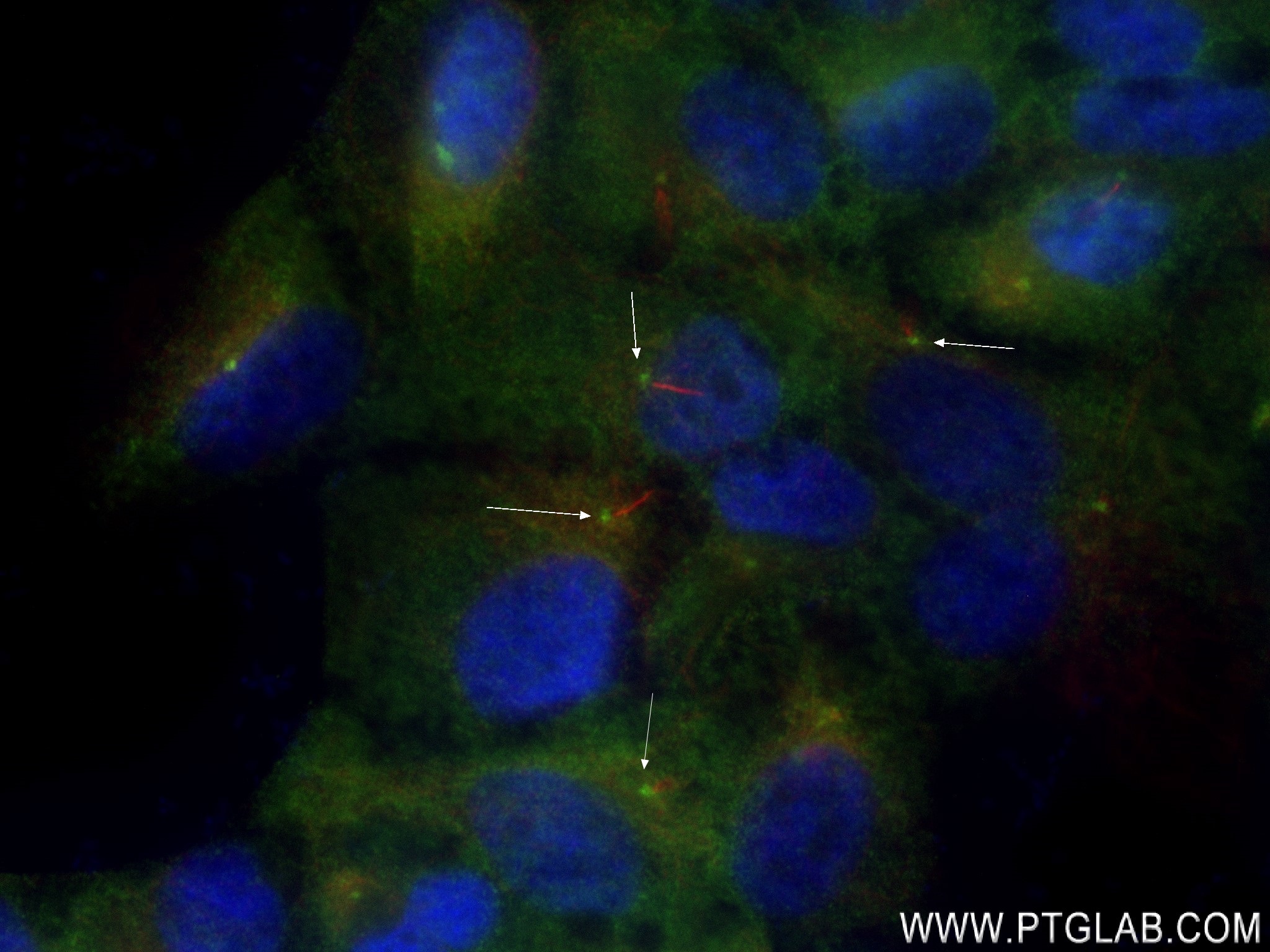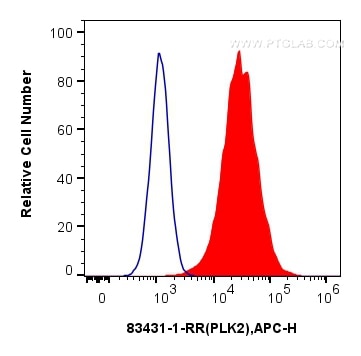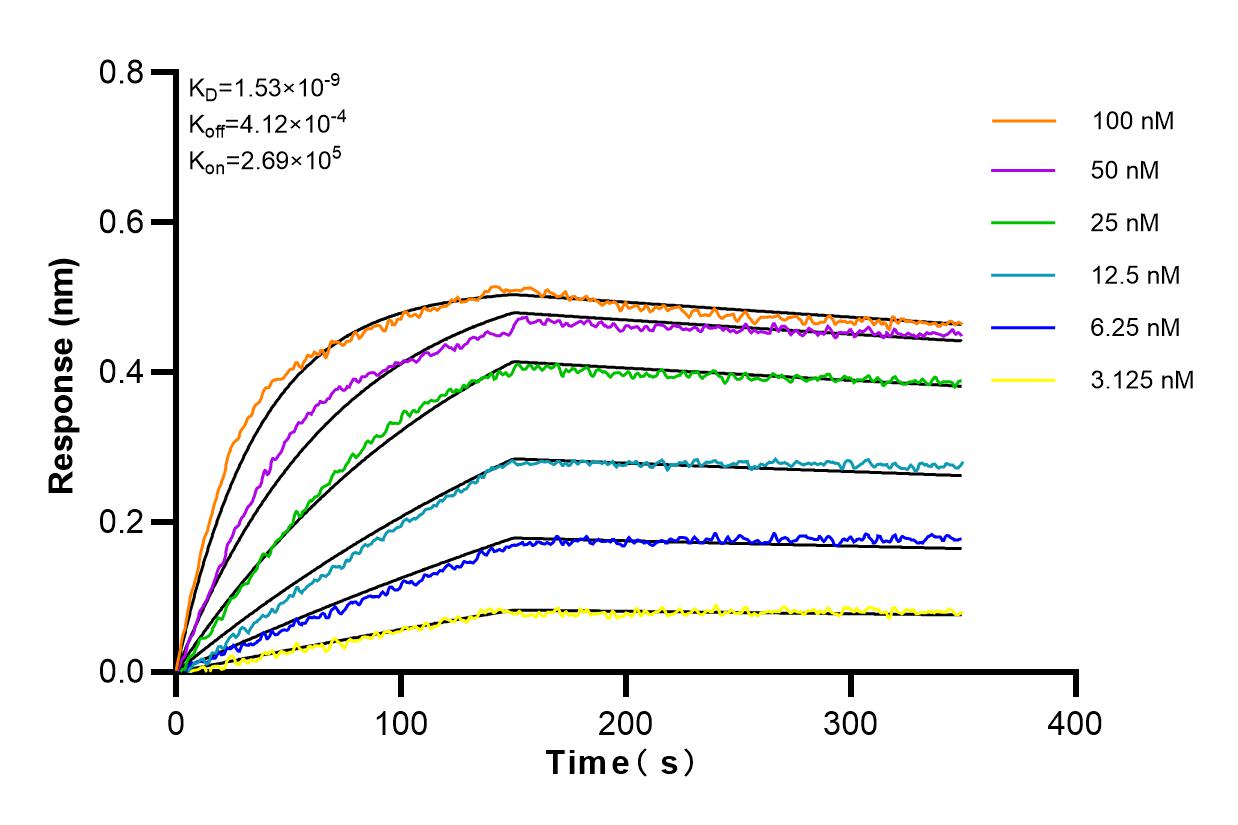Tested Applications
| Positive IF/ICC detected in | hTERT-RPE1 cells |
| Positive FC (Intra) detected in | A549 cells |
Recommended dilution
| Application | Dilution |
|---|---|
| Immunofluorescence (IF)/ICC | IF/ICC : 1:200-1:800 |
| Flow Cytometry (FC) (INTRA) | FC (INTRA) : 0.25 ug per 10^6 cells in a 100 µl suspension |
| It is recommended that this reagent should be titrated in each testing system to obtain optimal results. | |
| Sample-dependent, Check data in validation data gallery. | |
Product Information
83431-1-RR targets PLK2 in IF/ICC, FC (Intra), ELISA applications and shows reactivity with human samples.
| Tested Reactivity | human |
| Host / Isotype | Rabbit / IgG |
| Class | Recombinant |
| Type | Antibody |
| Immunogen | PLK2 fusion protein Ag29837 Predict reactive species |
| Full Name | polo-like kinase 2 (Drosophila) |
| Calculated Molecular Weight | 685 aa, 78 kDa |
| GenBank Accession Number | BC013879 |
| Gene Symbol | PLK2 |
| Gene ID (NCBI) | 10769 |
| RRID | AB_3671076 |
| Conjugate | Unconjugated |
| Form | Liquid |
| Purification Method | Protein A purfication |
| UNIPROT ID | Q9NYY3 |
| Storage Buffer | PBS with 0.02% sodium azide and 50% glycerol, pH 7.3. |
| Storage Conditions | Store at -20°C. Stable for one year after shipment. Aliquoting is unnecessary for -20oC storage. 20ul sizes contain 0.1% BSA. |
Background Information
PLK2(Polo-like kinase 2) is also named as SNK and belongs to the Ser/Thr protein kinase family. It plays a role in normal cell division. Plk2 expression is detected only in G1, and endogenous Plk2 is rapidly turned over. Therefore, the expression of the three mammalian Plks during the cell cycle resembles the successive transition of the cyclins, prompting speculation that Plks may reg-ulate the cell cycle in a manner analogous to that of Cdks(PMID:12972611).
Protocols
| Product Specific Protocols | |
|---|---|
| IF protocol for PLK2 antibody 83431-1-RR | Download protocol |
| FC protocol for PLK2 antibody 83431-1-RR | Download protocol |
| Standard Protocols | |
|---|---|
| Click here to view our Standard Protocols |







